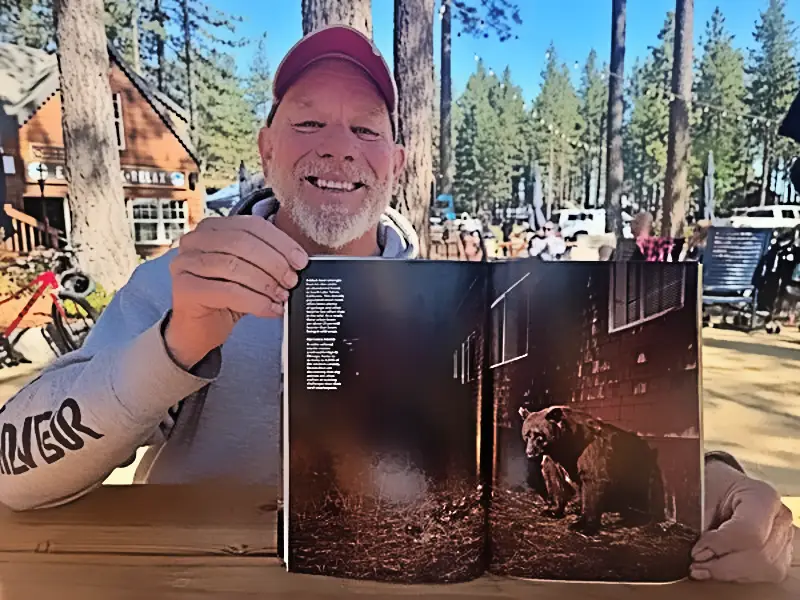National Geographic Issue Features South Lake Tahoe’s Urbanized Bears
Submitted by Jeff Munson
(PLACERVILLE, CALIFORNIA) July 17, 2022 — People around South Lake Tahoe already know him for his knowledge of local urbanized black bears, now people around the globe are taking notice.
When the July issue of National Geographic came out, the article about wild animals adapting to city life in surprising ways featured Toogee Sielsch of South Lake Tahoe. Professional photographer Corey Arnold spent three years exploring urbanized animals across the country as he created his story, “Why Cities Are Going Wild.”
“What an experience,” said Toogee of his three days with the photographer. […]
Black Bears Adapting to City Living, Study Says
Black bears (Ursus americanus) have efficiently adapted to the urban couch potato lifestyle, according to a recent study that compared urban and wild land bears in the Lake Tahoe region of Nevada.
Given a readily available and replenishing food resource—garbage dumpsters—the urban bears are nearly a third less active and weigh up to thirty percent more than bears living in more wild areas, biologists with the New York-based Wildlife Conservation Society report.
“A lot of people suggested [bears] might alter their behavior in the presence of humans. We went out and specifically tested some of these hypotheses with rigorous science,” said Jon Beckmann, a biologist with the society’s Eastern Idaho Field Office in Rigby.
Beckmann and colleague Joel Berger report their findings in the current issue of the Journal of Zoology. The Wildlife Conservation Society biologists were at the University of Nevada, Reno, when they conducted the research for the study.
In addition to seeking grub in dumpsters behind fast-food joints and suburban neighborhoods instead of foraging for wild berries and deer in the mountains, urban bears have also become night owls, whereas wild land bears are active during the day.
Mike Mitchell, a U.S. Geological Survey bear researcher who teaches at the School of Forestry and Wildlife Sciences at Auburn University in Alabama, said the findings are pretty much what he would expect.
“Bears are extremely efficient foragers and so intelligent, resourceful, and adaptable,” he said. “They’ll figure out a good food resource almost instantly and make the best use of it as quickly as they can.”
Mitchell added that urban bears are not lazier than wild land bears, just more efficient. Since they live in a garbage-can-rich environment, they expend less energy than do bears that have to forage in untamed lands for hours to get the same caloric intake.
Wild Land Impact?
